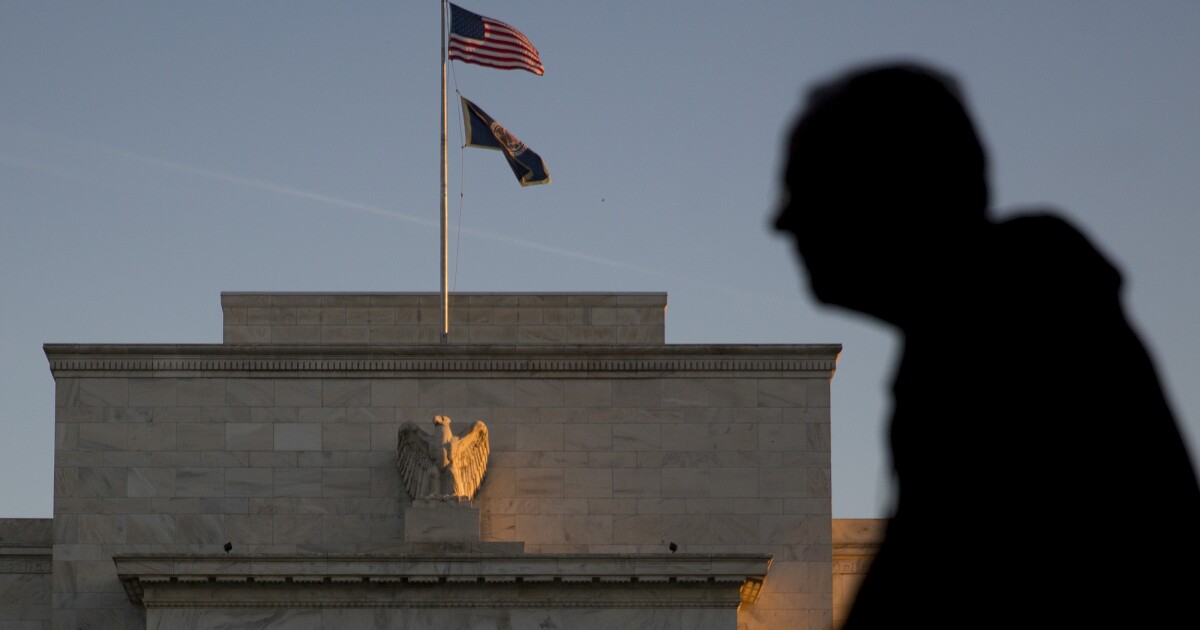
President Donald Trump's unprecedented and escalating attack on the Federal Reserve runs the risk of backfiring by hitting financial markets and the economy with higher long-term borrowing costs.
For weeks, he has lambasted Chair Jerome Powell for not slashing interest rates deeply to stimulate the economy and — as Trump sees it — lower the government's debt bills.
He's already
Yet for all the Fed's power over short-term interest rates, it's the 10-year Treasury yield — set in real-time by traders around the world — that largely determines what Americans pay for trillions of dollars of mortgages, business loans and other debts.
And even as Powell
Throw in fears that a Fed loyal to the president could cut rates too far, too fast — jeopardizing the central bank's inflation-fighting credibility in the process — and long-term rates could wind up even higher than they are now, squeezing the economy and potentially roiling other markets.
"The combination of weaker US payroll growth and the White House baiting of the Fed, both institutional and personal, is starting to create real issues for investors in US Treasuries," said David Roberts, head of fixed income at Nedgroup Investments, who expects long-term rates to rise even if short-term ones fall. "Inflation is running way above the Fed's target. Much cheaper money now would likely stoke a boom, a weaker US dollar, and materially higher inflation."
The pressure on long-term interest rates isn't unique to the US. They've been propped up in the UK, France and other countries by investors' worries about the same combination of high government debt loads and increasingly unpredictable politics.
But the crosscurrents of Trump's return to the White House have posed their own challenges.
During last year's presidential campaign, when investors started betting on his victory, 10-year Treasury yields rose sharply even as the Fed started pulling its benchmark overnight rate back from a more than two-decade high. That's because investors were anticipating that the Republican's tax-cut and deregulation agenda would add fuel to what was, at the time, a surprisingly resilient economy.
Since Trump has taken office, though, the Fed has been on hold as his unpredictable trade war upends the economic outlook, spooks foreign investors and threatens to push up consumer prices. When Trump's April tariff rollout unleashed one of the
He has since reimposed the import levies and his trade policy has continued to remain in flux. At the same time, his tax-cut bill is
"The US has to issue a tremendous amount of debt in order to fund its deficit," said Michael Arone, chief investment strategist at State Street Investment Management.
He said that overhang is adding to concerns about growth and inflation. "As a result, I would expect that long rates will remain higher and more volatile than the market expects."
While Treasury Secretary Scott Bessent has said the administration's cost-cutting and pro-growth policies would eventually pull down the 10-year yield — which he has held up as a key benchmark of success — that
That marked a relatively muted response to Trump's announcement that he was firing Cook from the Fed over unproven allegations of mortgage fraud, a move that Cook has vowed to fight in court. The Fed said it will abide by the outcome of the case.
US 10-year yields edged up one basis point to 4.27% in European trading Wednesday. Those on 30-year bonds held at 4.92%. The Treasury will sell $70 billion of new five-year debt later. An offering of new two-year notes drew strong demand on Tuesday.
Some of the market's response reflects expectations that the courts will protect the Fed's independence. Priya Misra, a portfolio manager at JPMorgan Investment Management, pointed to the "institutional safeguards that protect and jealously guard" the Fed from political pressure. Even Cook's replacement, she said, would unlikely alter the Fed's near-term trajectory.
Moreover, with job growth slowing and Powell now telegraphing that another round of rate cuts may start as soon as next month, traders are already pricing in five quarter-point reductions through the end of next year. Powell, a Trump appointee whose term as chair ends in May, has also said he wouldn't step down from his role and has sought to insulate the central bank from politics.
Yet, a mounting effort by Trump to reshape the Fed would almost certainly keep bond markets on edge — and long-term debt yields elevated.
Markets have grown accustomed to the Fed's autonomy, with recent presidents going out of their way not to be seen as influencing the central bank's policy.
Its insulation from electoral politics hasn't been an issue for investors since the early 1970s, when the Nixon administration sought to keep rates low by pressuring then-Fed Chair Arthur Burns. That has served as a cautionary tale ever since, given the subsequent surge of inflation that many blamed on the central bank for caving to the president.
"The unspoken Fed mandate is don't be Arthur Burns," said Steve Sosnick, chief strategist at Interactive Brokers. "You don't bow to political pressure."



